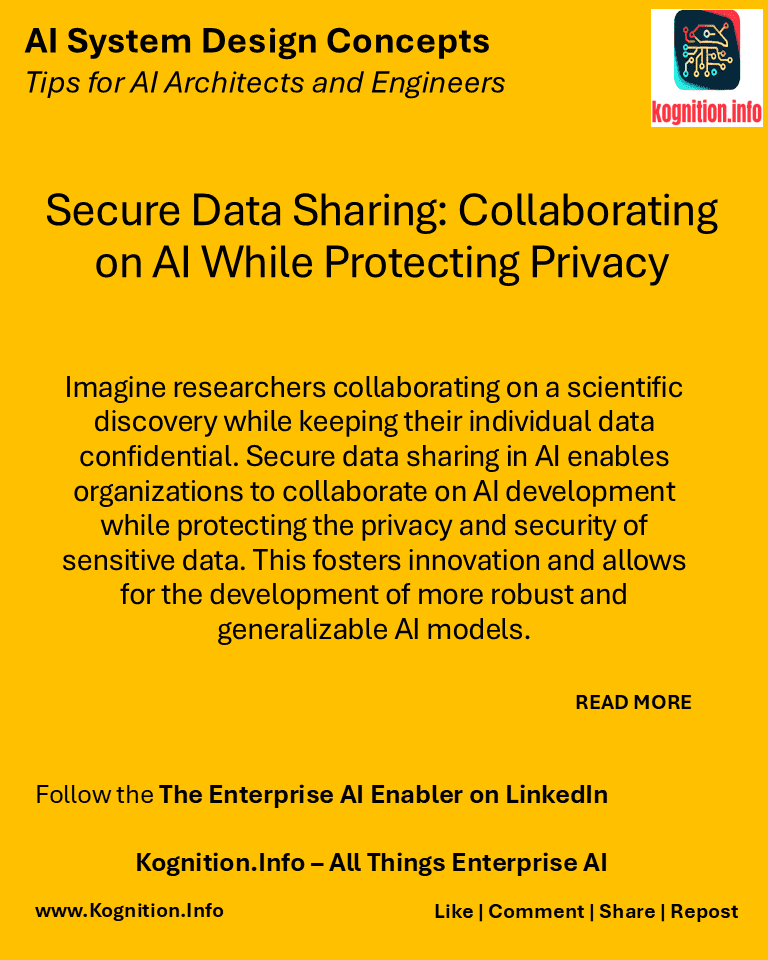
Imagine researchers collaborating on a scientific discovery while keeping their individual data confidential. Secure data sharing in AI enables organizations to collaborate on AI development while protecting the privacy and security of sensitive data. This fosters innovation and allows for the development of more robust and generalizable AI models.
Use cases:
- Training AI models on distributed data: Collaborating on model training without directly sharing raw data, such as in healthcare or finance where data privacy is critical.
- Developing privacy-preserving AI solutions: Building AI systems that can learn from data without compromising individual privacy.
- Facilitating research collaboration: Enabling researchers to share data and insights securely to advance AI development.
How?
- Use federated learning: Train models on decentralized data sources without directly accessing or sharing raw data.
- Employ differential privacy: Add noise to data or model parameters to protect individual privacy while preserving aggregate insights.
- Utilize homomorphic encryption: Perform computations on encrypted data without decrypting it.
- Establish secure data sharing agreements: Define clear terms and conditions for data sharing, including data usage restrictions and security protocols.
Benefits:
- Enhanced privacy: Protects sensitive data while enabling collaboration on AI development.
- Improved model generalization: Training on diverse and distributed data can lead to more robust and generalizable AI models.
- Accelerated innovation: Fosters collaboration and accelerates the development of new AI solutions.
Potential pitfalls:
- Complexity: Implementing secure data sharing techniques can be complex and require specialized expertise.
- Performance trade-offs: Some techniques may slightly reduce model accuracy or increase computational costs.
- Communication overhead: Secure data sharing can introduce communication overhead, especially in federated learning scenarios.
